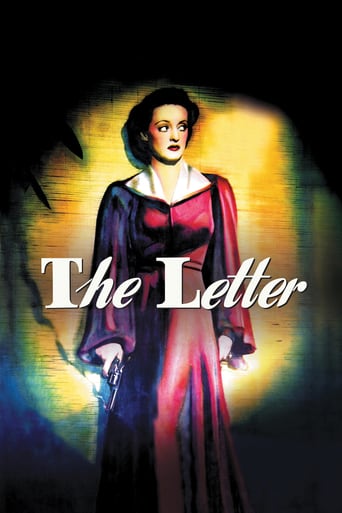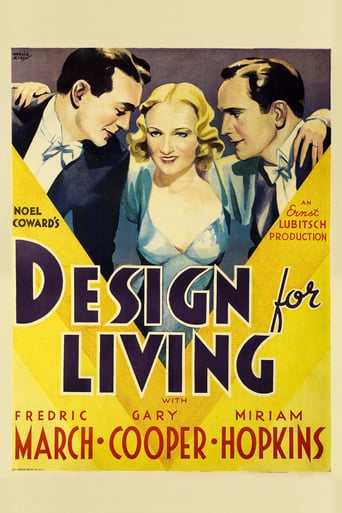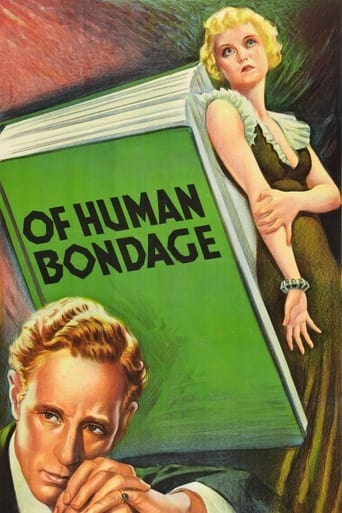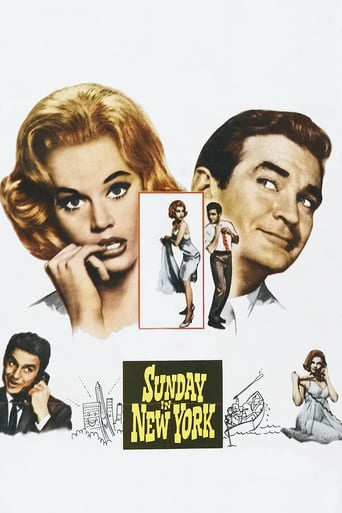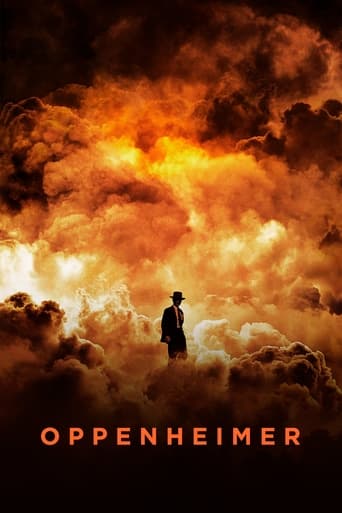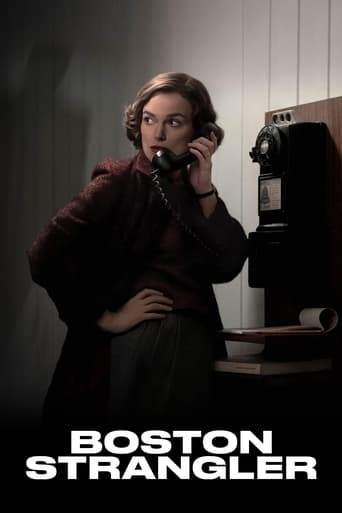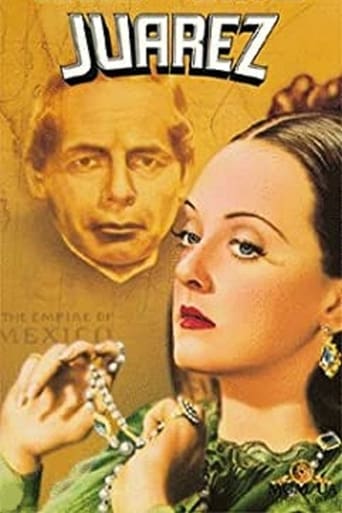


Juarez
The newly-named emperor Maximilian and his wife Carlota arrive in Mexico to face popular sentiment favoring Benito Juárez and democracy.
-
- Cast:
- Paul Muni , Bette Davis , Brian Aherne , Claude Rains , John Garfield , Donald Crisp , Joseph Calleia


Similar titles
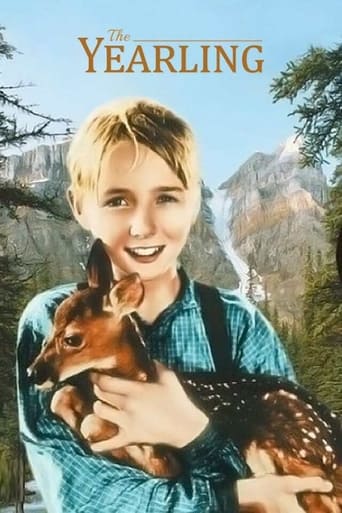
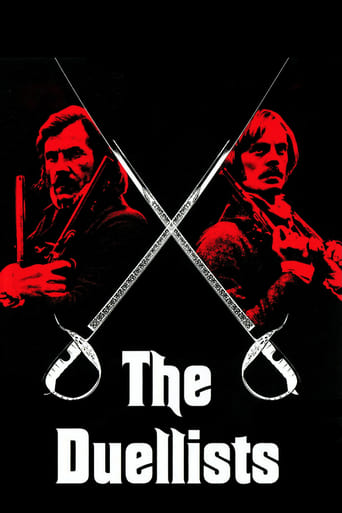
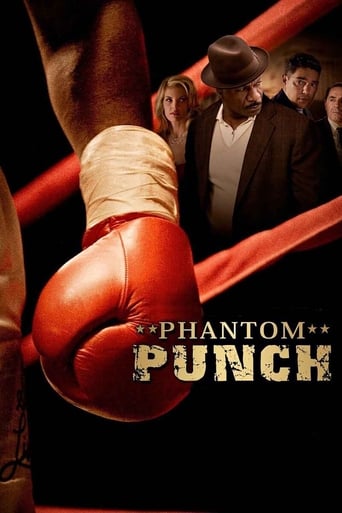
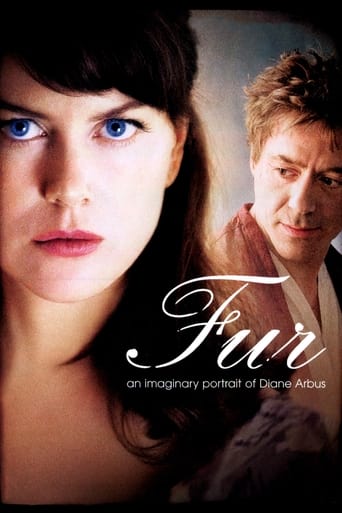
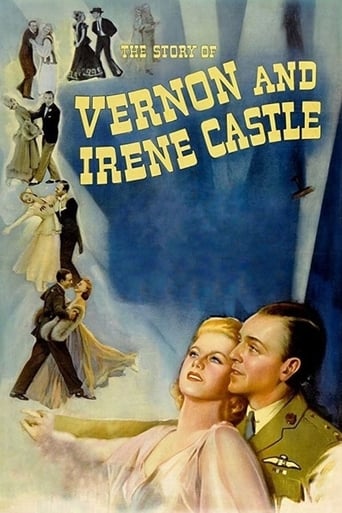
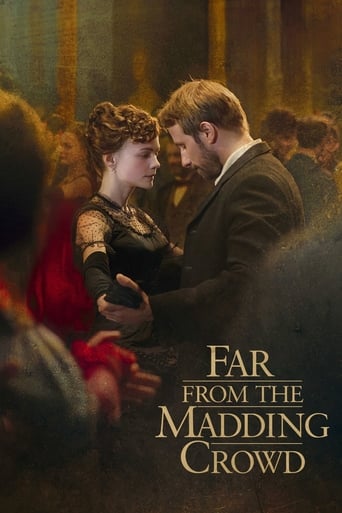

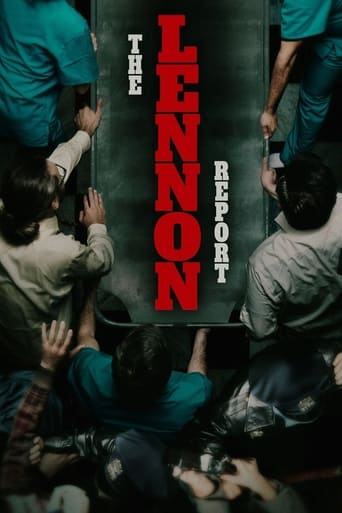

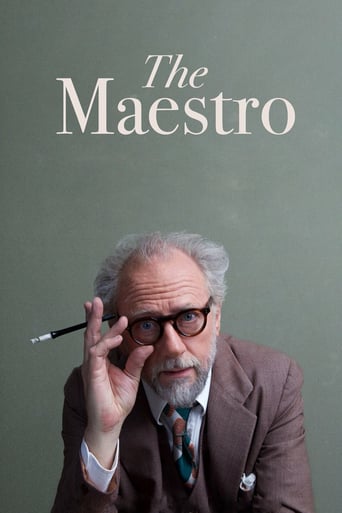
Reviews
Let's be realistic.
Best movie of this year hands down!
Beautiful, moving film.
There's no way I can possibly love it entirely but I just think its ridiculously bad, but enjoyable at the same time.
The story of Archduke Maximilian, the Austrian nobleman who was induced by Napoleon III to assume the role of monarch of Mexico in 1863, displacing Benito Juárez, Mexico's liberal president, played by Paul Muni. His enthronement was endorsed by the wealthy land-holding aristocrats of Mexico -- eighty-five families. The US was too busy fighting its own Civil War to bother with violations of the Monroe Doctrine. Juárez and his armies put up a stiff fight, and eventually Napoleon withdrew his French forces from Mexico. Maximilian and two of his loyal Mexican were captured and executed. Maximilian's wife, "the mad Carlota", was hospitalized in Europe and finally sent to a sanitarium.The film sticks pretty closely to historical fact, as far as a non-historian can tell. It's gripping. The hero is not Juárez at all but Maximilian. And, as presented here, it's an unalloyed epic tragedy. Shakespeare could have done wonders with it. Brian Aherne is Maximilian -- "Max", as his wife, Bette Davis calls him -- is a dignified man full of good intentions, whose policies (with one notable exception) followed those of Benito Juárez. Both were determined to promote equality and justice in Mexico. Again and again, Max defies the eight-five tycoons in favor of the ordinary people, most of whom can't read or write.The way Aherne plays Max, he's so gentle and dignified that he's almost effeminate, an impression supported by his hair style, which appears to be braided and coiled atop his head, and by this spectacularly unwholesome looking set of muttonchop whiskers. He believes that the Mexican people have invited him to become their emperor by means of a referendum, not realizing until too late that the referendum was rigged. He's a man of principle tempered by good sense. The ongoing war is nettlesome to him and he sends a messenger to Juárez with an offer to become Prime Minister of Mexico. All that separates them, as Juárez observes, is the word "democracy." Muni plays the character as a pompous humanitarian, full of folksy liberal pieties. Hs movements are slow and deliberate. He overacts underacting. Unlike Max, he's never in doubt about anything, which makes him rather dull. And, in a mistaken attempt to have him resemble the historical Max, make up has turned Muni into a clayish lump. And Muni delivers lines that seem made of lead. "In a monarchy, the government changes the people. In a democracy, the people change the government." Clunk.Actually, Juárez does seem like a law-abiding populist but he's about as yielding as reenforced concrete. He spurns Max's offer of Prime Minister, preferring war to compromise. Max, on the other hand gives a reasonably good argument in favor of kingship. A king, belonging to no party, owes no one anything and therefore can be impartial, while a president is beholden to the particular forces that elected him.I called the argument "reasonably good" because Mexico in the 1860s, with most of its population illiterate farmers, may not have been entirely ready for a republic. What followed Juárez was a series of dictators, factional disputes and revolutions, including a raid across the border into the USA by Pancho Villa in 1917. Interesting parallel: When Max's French troops try to fight Juárez's army, that army dissolves into the general population in its own neighborhood. If you can't find them, you can't fight them. Ditto after Villa's raid into Columbus, New Mexico. The US Army sent a large expeditionary force into Mexico to find and punish Pancho Villa and his army. But there was nothing to fight. The soldiers had turned into farmers.This was released in 1939 and lest we miss the point of dictatorship vs. democracy, the appearance of Archduke Maximilian is accompanied by the strains of "Deutschland Über Alles." Some other notes: Back in the USA, the South wanted to invade Mexico and turn it into a slave-holding nation, while slavery had been outlawed two generations earlier. And some of Lincoln's advisers wanted him to declare war on Mexico to deflect attention from the Confederate victories during the early years of the Civil War. (Mexico as low-hanging fruit.) In the end, the populist movement prevailed in Mexico; the vast haciendas were broken up and the land redistributed to farming families, each of which got enough land to support itself. The irony was that the birth rate became so high that the family farm could no longer feed so many people, so many of the farmers migrated to the cities in search of work, found little, and established the squatter settlements in shacks of corrugated tin and cardboard that now surround Mexico City. That's kind of off topic, an obiter dictum. Let's just say that in this movie, Juárez comes out on top but it's a tragic victory.
With a major studio behind it, an all-star cast, a strong team of writers (including John Huston), a glorious score, beautiful costumes, and a fact-based story, this should have been a great film. It is not. The twin handicaps of a dull, dull script and some odd casting make this tedious viewing indeed.A history book of film guide will offer up the synopsis: Louis Napoleon of France seeks to keep control of Mexico's resources by making Archduke Maximillian of Austria and his wife Carlotta puppet rulers, despite the fact that Mexico, led by Benito Juarez, is struggling to establish itself as a republic. Bad things happen. Brian Aherne does the best job among the cast, dealing with subjects he doesn't understand, power he enjoys a little too much, and an increasingly unstable wife. He wins the viewer's sympathy, even though one is made to feel a little guilty liking a dictator, especially when scenes cut to Paul Muni as Juarez gazing with admiration at a portrait of Lincoln and intoning the word "democracy" with spooky reverence. (By the way, check your civics book; a republic is not the same as a democracy.)Muni is a puzzle. Whether he assayed portrayals of historical figures such as Pasteur or Zola or tackled a very exotic role such as the patriarch in "The Good Earth," he did so with dignity, intensity, and a clear understanding of the character. Not so here. In what seemed to be an attempt to portray the endurance and stoicism of Juarez who rose from being an illiterate Indian to a visionary leader, Muni instead delivered a robotic, almost monotone, performance and his make-up man went overboard: he looks like a cross between George Lopez and Raymond Massey in "Arsenic and Old Lace" and sounds like Stephen Hawking.In the scenery-chewing histrionics category, the nominees are Claude Rains as Louis Napoleon and Bette Davis as Carlotta. Claude Rains excels in roles that call for him to be vainglorious, slimy, and double-dealing, but I'll give Davis the edge. No one ever looked less like a dark, smoldering exotic type than she and no one could do nervous-accelerating-to-nuts better. Orson Welles once said there were two things actors could not do convincingly: pray and copulate, and Carlotta in the chapel imploring the Virgin Mary for a child confirms the hypothesis about the first. Since Maximillian and Carlotta never have a child and must resort to adopting a small boy to be their heir, we'll assume the second didn't work out, either.It's bizarre that the cast represents many nationalities and cultures, but with the exception of the always great Gilbert Roland (who was born in Juarez, Mexico), no one is Austrian, French, or Mexican. John Garfield as Diaz tries mightily to master a Meh-hee-can accent but his Lower East Side roots are showing.The film generally is overlong and preachy. The viewer almost feels like grabbing notebook and pen and taking notes, because there's a sense that a pop quiz will follow when the lights come up. History can be the basis for some exciting and exceptional film-making, but this isn't it. Don't see if if you can.(One fun fact: Two of the minor actors, Harry Davenport, as a member of Maximillian's cabinet, and Mickey Kuhn, as the child adopted by the Emperor, also had small roles, as Dr. Meade and Beau Wilkes respectively, in another film of 1939, "Gone with the Wind." It did a little better.)
In 1863, with the Civil War in America nearly won by the North and the Monroe Doctrine about to be imposed, French Emperor Napoleon III realizes he can't overtake Mexico by force and decides to establish a Monarch in the country--much to the dismay of the Mexican people and their president, Benito Juarez, who realize it's a puppet dictatorship. Although the film (based in part on a play from Franz Werfel and also the novel "The Phantom Crown" by Bertita Harding) is satisfactory on an artistic level, it is emotionally hollow. Paul Muni's top-billed performance as Juarez, a man of few words, is nearly swallowed up by the work of his co-stars, all performing at scenery-chewing level. Indeed, much of the dramatic focus is on Brian Aherne and Bette Davis as the Emperor and Empress Hapsburg, who are the pawns in the political game, one that ultimately drives Bette's Empress mad (in scenes verging on self-parody). The picture isn't involving as dramatic entertainment, yet as a cinematic history lesson it has some merit, and Aherne was nominated for a Supporting Actor Oscar. ** from ****
An amazing conflagration of actors populates the cast of 1939's "Juarez" -- Brian Aherne, Paul Muni, Bette Davis, Claude Rains, John Garfield, Gale Sondergaard, Donald Crisp, Gilbert Roland, and Louis Calhern. More amazing is the size of many of their roles - small! It shows that Warner Brothers put everything behind this epic film.The story concerns the short reign of Maximilian von Hapsburg (Aherne) as Emperor of Mexico, seduced into taking the position by Napoleon III (Rains) who convinces him that the Mexican people want a monarchy. They don't. Opposing Maximilian is the man of the people, Benito Juarez (Muni), who has the support of the United States. Both Maximilian and Juarez want many of the same things, but Maximilian's hard work to unite the Mexican people and stop the fighting fails.Though the title is "Juarez," the workhorse role belongs to the underrated Brian Aherne, an excellent actor from the theater who took second place to Errol Flynn at Warner Brothers. Though superstardom eluded him, he was a brilliant actor and a handsome man who turned in many great performances during a 43-year career. His Maximilian is gentle, likable, strong, and sympathetic. He gets third billing to Muni and Davis. Davis plays the Empress Carlota, Maximilian's wife. It's a secondary role but she has a huge, dramatic scene when Carlota returns to France to insist that Napoleon III keep his troops in Mexico. One of the best moments in the film is Carlota, going mad and believing the French court is trying to poison her, running out into the night, her white dress slowly disappearing. Davis wears magnificent gowns and has dark hair that seems to emphasize her huge eyes even more. She looks quite beautiful and gives a solid performance as a fragile woman devoted to her husband.Paul Muni's Juarez is stiff, and he looks and acts as if he's embalmed. Muni was a great actor who delved deeply into his roles, and it's not clear what he was thinking when he gave this performance. Undoubtedly he had researched Benito Juarez to the ground and was giving an exact representation of him. But as Bette Davis once said, "True acting is larger than life." Muni needed something more for this role but doesn't supply it. John Garfield's Porfirio Diaz is odd casting. He makes a little attempt at an accent; underneath that dark makeup is still John Garfield. Supposedly his role was cut down. Back in 1939, audiences were just getting to know him, so his performance probably held up well back then. Nowadays one only thinks, "Why is John Garfield playing a Mexican?" "Juarez" is rich in detail - it occasionally is plodding and runs a bit long in an effort to supply the historic happenings. But it is well worth seeing for the performances, the story, and those Orry-Kelly gowns.

